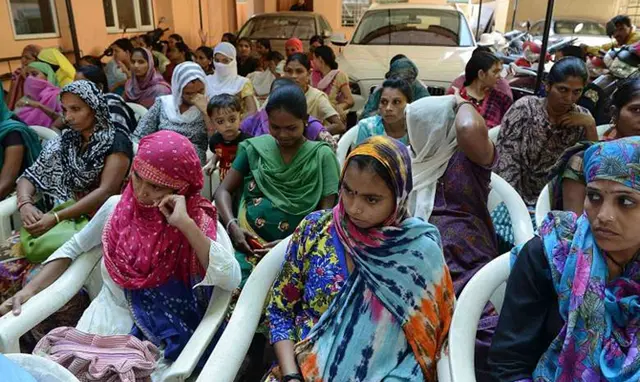The Indian government has moved to ban commercial surrogacy, sparking fears that the multibillion-dollar industry could go underground.
Foreign couples, single parents and gay couples would be blocked from using surrogacy services in India if the draft law is approved by Parliament.
Only infertile couples who have been married for at least five years would be eligible to seek a surrogate - a close relative who should already have one healthy child. Violators may face a jail term of up to 10 years.
"Childless couples, who are medically unfit to have children, can get help from a close relative, in what is an altruistic surrogacy," External Affairs Minister Sushma Swaraj told reporters. "This is a revolutionary step for women's welfare."
The Cabinet approved the draft law on Wednesday. It is expected to be introduced in Parliament in the winter session, which typically starts in November. The ruling Bharatiya Janata Party (BJP) has a majority in the Lower House but not the Upper House.
India has been a hub for surrogacy services and the industry generates over US$2 billion (S$2.7 billion) annually, according to estimates.
The rent-a-womb business in India attracts foreign nationals due to the low medical costs. But there has been little or no regulation amid concerns that poor women who are unaware of their medical rights are being exploited and paid little compared to what clinics earn. Surrogates in India are paid between 60,000 rupees (S$1,200) and 500,000 rupees for every pregnancy, while clinics are paid up to 2 million rupees for surrogacy services.
The government's decision has been criticised by doctors as well as advocacy groups which had been seeking strict regulation to protect surrogates.
"Exploitation fears could have been taken care of through regulation," said Dr Himanshu Bavishi, president of the Indian Society for Third Party Assisted Reproduction. "This (ban) is something which is totally regressive and seems to be taken under pressure from conservative sections of the party (BJP)."
Women activists also raised concerns about how women could be exploitedby their families.
"The ban as a policy response is very limited and short-sighted. Is the government sure altruistic surrogacy is not exploitative? Family as an institution can be very exploitative towards women," said Ms Sneha Banerjee of Sama, a Delhi-based resource group that works on women and health issues.
Many also believe that the government would not be able to enforce a ban. At present, the surrogacy business includes a network of middlemen who source women from different parts of the country, and take them to medical clinics that match them up with couples.
According to the government, there are 2,000 clinics offering surrogacy services.
"A ban doesn't work in a situation where the industry is so deeply rooted and there is so much money involved. The activities will go underground and the risks are higher for poor women," said Dr Ranjana Kumari, director of the New Delhi-based Centre for Social Research.
(THE STRAITS TIMES)
 简体中文
简体中文





